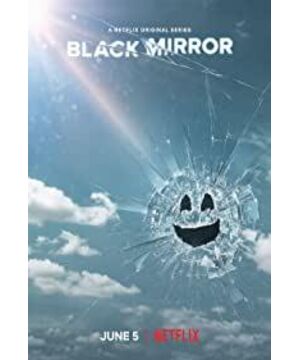If you want to give a general evaluation, one is better than two, two is better than three, this is only in terms of connotation. The first one has far-reaching implications, and if made into a film, it will be a great film in the early 21st century. First of all, it satirizes the growing trend of entertainment and consumption in contemporary society, which is also the common theme of the first and second books. But the first one uses a very extreme situation to express this theme, a person, under the pressure of irresponsible expression and choice of most people in society (everyone can express irresponsibly, which is a part of the mob era feature), collapse after facing an extreme dilemma. The first also contains a more profound theme, that is, the moral dilemma. Is there an immutable, necessarily correct moral code? The repeated and volatile public opinion in the film is our hesitant moral choice: a hero who sacrifices himself for a weak woman is worthy of praise; it is also necessary to defend one's dignity as a human being. So what should a person do when faced with the situation in the film? How can we conform to the rules that society and tradition have given us? How can I make myself unashamed? There seems to be no one-size-fits-all answer. How to choose depends only on personal values.
The story of the second installment is set against a very absurd dystopian setting. To be honest, as an engineering student, my first thought was to see the great prospects for the development of human-computer interaction technology in the future. The second one is still ironic, and it clearly simplifies our life into a TV show, manipulated by a few bigwigs, dozens of actors and actresses, and countless viewers entertained and paid for. Will our lives develop like this? Not likely, because energy is a problem that cannot be solved. In the future, if our lives are really manipulated by capital, it is likely to be an alliance formed by financial giants and military forces that hold the right to extract energy. Sometimes I feel that the so-called energy conservation and environmental protection, charitable acts, and low-carbon LOHAS are similar to the draft (referring to those who appear in the media and whose silent deeds are worthy of respect), but they are just creating new markets, maybe in those low-carbon propaganda. During the event, the carbon emission has exceeded what it claims to be able to save, but some companies and people have a higher exposure rate, and some meaningless commodities suddenly have more reasons to buy in your eyes. There is a Japanese brand MUJI, which has a great sense of design, and also promotes that its products are very environmentally friendly. But they all have one thing in common: they are expensive. Most industries in this world do not meet the so-called "environmental protection" standards. In order to earn money to buy MUJI products, such as buying a water bottle that originally cost 60 yuan for 12 yuan, we have created five times the pollution in our work. Who is the beneficiary? Is it our vanity, the capital behind MUJI, or the natural world?
The third is more like a pure science fiction story, if there is a level beyond technology, it points to paranoia and narrow-mindedness. But there is a premise in this story. Without such a thing as memory particles, people's paranoia will not be strengthened to this point. Therefore, the third part is biased towards warnings about the abnormal development of technology.
In general, Black Mirror asks us a question (more of a question asked in the first and second installments): Will we be entertained to death? In the current world, the earth has been conquered by us, the development of manufacturing in developed countries has reached a bottleneck, and it is not possible to colonize space - so, entertaining the people is indeed the choice of profit-seekers. On the other hand, in the era of industrialization, work pressure is increasing, people's lives are becoming more and more similar, and the stimulation from electronic products and the Internet has become more and more important. The era of entertainment, the era of attention equal to money may be approaching us. Let's pray for the next era of great sailing, and people will shed their blood in space instead of dying from overwork in a pale office. But who knows, will those heroes who fight against the unknown universe become the talk of the mass media? Or, their feat is just a show?
View more about Black Mirror reviews











